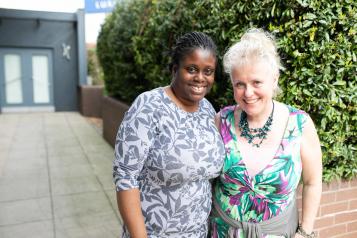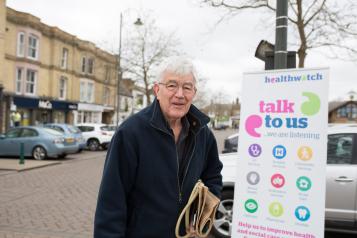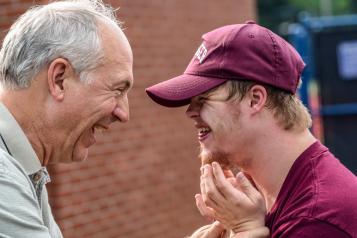What should happen when you're diagnosed with dementia

The essential information you should get
- Your type of dementia and how it will affect you.
- Any further tests, treatment, activities or therapies that might help you.
- Who will provide your care and how to contact them, including the professional who will coordinate your care.
- Support groups and charities that can help you.
- How dementia can affect your driving and what you need to do.
- How your employer should support you if you work (or are looking for work).
- Any research studies you could take part in.
This information should be explained to you and given to you in writing. You can also ask for it in a format you understand. If you don’t need this information straight away, you can ask for it later on.
What else should you talk about with your GP?
- Consent - Do you agree to services sharing information about you? Who can they share information with, and what are you willing for them to share?
- Information - Do you know who to contact for more advice if your needs change?
- Future contact - You may not need any help or further appointments now. If that is the case, would you like to be contacted again and if so, when?
Next steps checklist
It's not just health and care support you need to think about when diagnosed with dementia. To help you, Dementia UK has created a checklist to follow, which includes information on benefits and discussing plans and wishes with your family.
What support have you received?
Have you or loved one been diagnosed with dementia? We want to hear your experience of dementia care and support - good and bad. We have the power to make sure NHS leaders and other decision makers listen to and act on your feedback. So, if you've got a story to share, tell us!
Planning your care
Now
After your diagnosis, your GP should direct you to services that can give you more information and support. You should also be given the name of a professional who will coordinate any care and support you might need.
The future
Thinking ahead can feel overwhelming, but planning care can help make sure people know your wishes for the future. When you're ready for this, you should be offered support and information to discuss your options.
Support for carers
Anyone with caring responsibilities for a person with dementia is entitled to a Carers' Assessment. Their local Authority will carry this out. The Assessment will look at the impact of caring for a person with dementia and what support is needed. Take a look at Dementia UK's guidance on Carers' Assessments for more information.
As a carer, it is essential to think about your health and wellbeing. It is a significant adjustment, so you should take a look at the options available to you. These can include:
- Training
- Support
- Advice
More information
The information on this page is from The National Institute for Health and Care Excellence guide for people with dementia and their family and carers. Take some time to read the guide in full to understand better the support available to people with dementia and their carers.
Are you looking for support services?
Here is a list of some organisations that offer support and advice for people experiencing dementia and their carers.
Age Exchange
A national centre for Reminiscence Arts and dementia intervention. They create intergenerational projects and are also a vibrant community hub in the heart of south-east London.
020 8318 9105
Alzheimer's Society
National charity offering support and advice for people affected by dementia.
0333 150 3456
Just Checking
Just checking is an activity monitoring system that helps people stay independent in their own home.
01564 785 100
Nubian Life Resource Centre
Nubian Life Resource Centre provides for African and Caribbean older people living with complex health conditions such as Dementia.
0207 749 8017
For further information on what support services are available, please contact the Healthwatch team by calling us on 0203 886 0386 or email info@healthwatchhf.co.uk.


